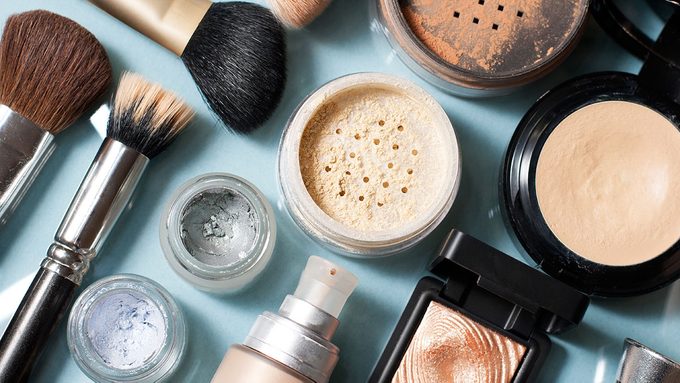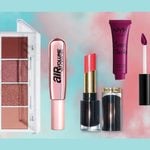How Your Beauty Products Could Be Sabotaging Your Fertility
What you put on your skin could affect more than just your skin. It could also affect your fertility, according to science. Here’s what you can do about it.

Here’s how certain chemicals in your beauty products could be affecting your fertility
Unfortunately, all the chemicals you come into contact with are absorbed into your body — or up to 60 percent of them, says dermatologist Julie Russak, MD, of Russak Dermatology Clinic in New York City. The issue is that chemicals absorbed through the skin have been linked to some cancers, including breast cancer, and fertility problems in both men and women. We’ll tell you what to avoid — and what to look for in your skincare products.
The scare started a few years ago when researchers at the UCLA School of Public Health discovered that perfluorinated chemicals (PFCs) — chemicals that are widely used in everyday items such as food packaging, pesticides, clothing, upholstery, carpets and personal care products — may be associated with infertility in women. Their findings suggest that women whose blood contains high levels of PFCs take longer to become pregnant than women with lower levels. In fact, the researchers found that women with the highest blood measures of PFCs were up to 150 per cent more likely to have difficulty — or require medical assistance — in becoming pregnant, Atlanta OB-GYN, Kyrin Dunston, MD, FACOG, explained to Reader’s Digest. And that’s likely the result of “how PFCs affect normal hormone regulation.”
Here are 6 of our fave green beauty product finds.
A long list of beauty products containing PFCs
“Eyeshadow, foundation, facial powder, bronzer and blush account for nearly 80 per cent of the products with PFCs,” according to the Environmental Working Group (EWG), a non-profit organization dedicated to protecting human health and the environment. The EWG has come up with a list of 266 products that contain PFCs, from eyeshadow to shaving cream to lip balm.
Some that don’t contain PFCs
More and more companies are offering PFC-free products, including Edible Beauty, an Australian skin-care brand, has committed to developing all-natural skincare products they say are good enough to apply to your skin because they are “literally good enough to eat!” Edible Beauty’s Founder, Anna Mitsios is a practicing nutritionist and naturopath who passionately believes that “we are a direct reflection of what we place in and on our bodies.”
As such, she consciously selects pure ingredients that will act as “beauty food” and promote overall wellness.
A PFC-reality check
Although some controversy remains about the connection between PFCs and infertility — certain experts point out that the UCLA study didn’t distinguish between male and female infertility — it’s also important to know that cosmetics are only one source of PFCs in the environment. According to Renée Volny Darko, DO, an OB/GYN practicing in Pennsylvania, while PFC-free cosmetics are a good start, cutting your overall exposure is far more complicated. For a more comprehensive guide to the items in your own environment that emit PFCs, you can consult the EWG’s guide and you can review this list from researchers at Colby College.
In addition, the U.S. Food and Drug Administration has officially banned 19 ingredients from soaps sold over the counter, which ingredients are known to disrupt hormones such as testosterone and estrogen. Here is more information about that ban.
This is what to eat to boost fertility and help you conceive.




